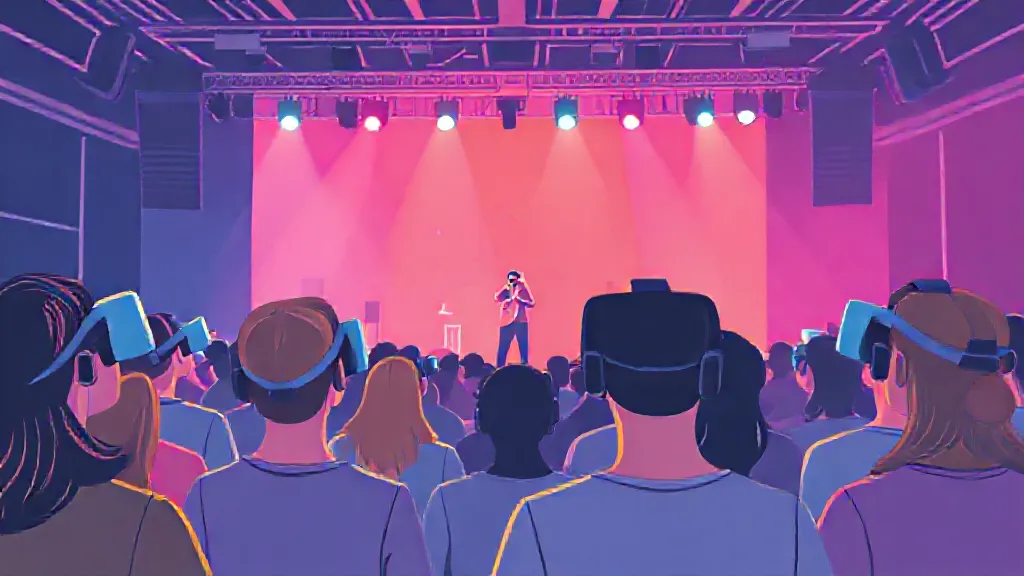The integration of virtual reality (VR) into the concert experience is reshaping the way audiences engage with live music. As technology advances, VR is becoming a transformative tool that not only enhances the viewing experience but also expands accessibility to concerts worldwide. This article delves into how VR is changing the landscape of live music events, providing an immersive experience that transcends physical limitations.
The Rise of Virtual Reality in Entertainment
Virtual reality has evolved significantly over the past decade, transitioning from a niche technology into a mainstream entertainment medium. The gaming industry was one of the first to adopt VR, creating immersive environments that captivated users. Following this trend, the music industry began exploring VR's potential to enhance live performances.
Major artists and music festivals have started to invest in VR experiences, allowing fans to attend concerts from the comfort of their homes. This shift not only caters to tech-savvy audiences but also offers a solution for those unable to attend live events due to geographical or physical constraints.
Creating Immersive Concert Environments
One of the most compelling aspects of VR in concerts is its ability to create immersive environments.
Through VR headsets, users can experience concerts as if they were physically present, surrounded by a 360-degree view of the performance. This technology allows for innovative stage designs and visual effects that enhance the overall experience. For instance, artists can incorporate virtual elements, such as holograms or animated backgrounds, that interact with their live performance, creating a unique spectacle that captivates audiences.
Accessibility and Inclusivity in Live Music
VR technology has the potential to democratize access to live music. Fans from remote locations or those with disabilities often face challenges attending concerts. Virtual reality bridges this gap, allowing individuals to participate in live events without the barriers of distance or mobility.
For example, the Coachella music festival has experimented with VR broadcasts, enabling fans worldwide to experience the festival in real-time, fostering a sense of community among viewers regardless of their physical location.
Enhancing Fan Engagement and Interaction
In addition to providing a visual experience, VR can significantly enhance fan engagement during concerts. Interactive features allow users to choose their vantage point, explore the venue, and even interact with other attendees in a virtual space.
This level of interactivity fosters a deeper connection between the artist and the audience, as fans can feel more involved in the performance. Some platforms also incorporate social media elements, enabling viewers to share their experiences in real-time, further amplifying the concert’s reach and engagement.
The Economic Implications of VR Concerts
The financial implications of incorporating VR into concerts are substantial.
Artists and promoters can reach larger audiences without the constraints of physical venues, potentially increasing ticket sales and revenue. Additionally, VR experiences can be monetized through virtual tickets, exclusive content, and merchandise, creating new revenue streams for artists. As the technology becomes more popular, it may also lead to reduced costs for event organizers, as they can save on logistics and venue expenses.
Challenges and Limitations of VR in Concerts
Despite its potential, the integration of VR into concert experiences is not without challenges. The technology requires significant investment in equipment and production, which may not be feasible for all artists or venues. Additionally, the quality of the VR experience can vary based on the user's hardware, leading to inconsistencies in how concerts are experienced.
Furthermore, there is the risk of alienating traditional concert-goers who prefer the atmosphere of a live event over a virtual experience.
The Future of Concert Experiences with VR
Looking ahead, the future of concerts will likely see a hybrid model that combines both in-person and virtual experiences. As VR technology continues to advance, we can expect more innovative applications in the music industry.
Artists may offer exclusive VR content, allowing fans to experience behind-the-scenes footage, rehearsals, or intimate performances. This evolution could redefine how concerts are marketed and consumed, creating a more personalized experience for fans.
Conclusion: A New Era for Live Music
In conclusion, virtual reality is poised to revolutionize the concert experience by offering immersive, accessible, and interactive performances.
As the technology matures, it will likely play an increasingly significant role in shaping the future of live music events. By embracing VR, artists and promoters can create unforgettable experiences that resonate with fans, ensuring that the magic of live music continues to thrive in this new digital age.
